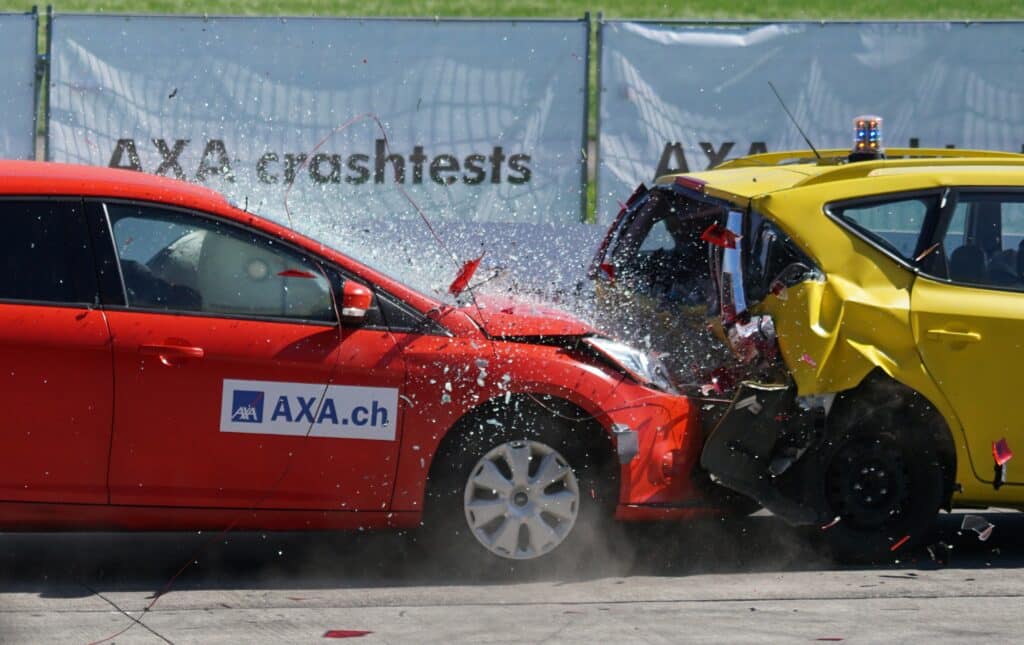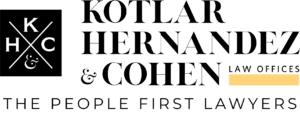The U.S. Bureau of Labor Statistics reports that work-related car accidents and other workplace vehicle accidents cause the most work-related fatalities, accounting for 40 percent of all occupational deaths in 2016 with a total of 2,083 deaths involving vehicles at work.
Even when the outcomes are not fatal, work-related car accidents cause a significant number of serious injuries per year. Vehicles used for work purposes can involve employer-owned cars or other vehicles as well as employee-owned personal vehicles used to travel for work or perform other work functions.
In this article, we’ll discuss the basics of work-related car accidents, who is responsible, and more.
What Are Some Types of Vehicle Accidents that Happen in Workplaces?
Examples of work-related accidents involving automobiles and other work vehicles include:
- A single-vehicle accident involving a personal or work vehicle
- A collision between two work vehicles
- A collision between a work vehicle and a personal vehicle
- An accident in which a worker is struck by a work vehicle
- A worker being struck by a personal vehicle
- A back-over accident

What Are the Circumstances that Cause These Accidents?
Work-related transportation accidents are not all that different from other types of motor vehicle accidents that occur among the general population every day; these include:
Driver distraction. Whether handling a work vehicle on the jobsite or driving a personal car on the open road, drivers must pay attention to their surroundings and remain mindful of the dangers of operating motor vehicles. Distracted driving is responsible for up to 74 percent of job-related vehicle accidents, according to a report by workforce platform and software provider Motus.
Blind spots. Big trucks and awkward equipment can cause dangerous blind spots that obscure a driver’s view of the road and nearby vehicles and people. It is no wonder that this danger appears on the list of causes of work-related vehicle accidents.
Back-over accidents. Big trucks, small passenger cars, and work vehicles are too often involved in back-over accidents that cause serious work injuries. Drivers must check for clearance before backing up, and workers must avoid stepping into the path of a vehicle that is in reverse.
Reckless driving. Risky driving behaviors such as speeding and tailgating are common causes of work vehicle accidents. Motus reports that speeding was involved in 31 percent of job-related collisions.
Driver impairment. Unfortunately, drivers who get behind the wheel while intoxicated by alcohol or drugs cause accidents that cause serious injury or death. Even the misuse of prescription drugs or over-the-counter medications can cause impairment. Driving under the influence of these substances accounts for 18 percent of vehicle accidents on the job.
Drowsy driving. Driving while overtired is another problem for workers who operate vehicles as part of their job. Driver fatigue is a real problem, especially amongst truck drivers, leading to more and more trucking accidents every year.
Work-Related Car Accidents: Who is Responsible?
In work-related car accidents, there are a few different types of possible liable parties.
In some cases, it may be the employer who is held responsible for the accident. For example, if an employee is driving a work vehicle and causes an accident, the employer could be held liable if it can be proven that the employer did not provide proper training or if the work vehicle was not properly maintained.
In other cases, it may be the driver who is held liable for the accident. This could be the case if the driver was impaired by drugs or alcohol, was driving recklessly, or was distracted at the time of the accident.
Finally, if the accident included a third party such as another driver, a pedestrian, or another party, that third party could also be held liable for the accident.
In any case, if you have been involved in a work-related car accident, it is important to speak with an experienced personal injury attorney who specializes in workers’ compensation and third-party claims and seek legal advice.
Can I Collect Workers’ Compensation for a Work-Related Vehicle Accident?
Just like any other type of work accident, if you were acting in an official capacity and performing job duties when you were hurt, your accident will be covered under your employer’s workers’ compensation program.
Importantly, commuting to work generally does not qualify as an official work duty, but becoming injured in an accident while driving your car from the office to a work-related meeting would be eligible.
Do Workers’ Compensation Benefits Still Apply if I Was Driving My Own Vehicle for Work?
If your job duties required you to make use of your own personal vehicle, you should still qualify for Workers’ Compensation. However, there are additional ways to collect compensation depending on the circumstances of the accident.
Will I Be Covered under My Own Personal Injury Protection (PIP) Policy?
In Pennsylvania, New Jersey, and other no-fault car accident states, if you are involved in a car accident, you should have coverage under your own insurance company’s policy regardless of who was at fault in the accident. If the other driver caused the accident, you may be able to file a claim against them in extreme cases.
Is My Eligibility for Workers’ Compensation Affected by Who Caused the Accident?
Workers’ Compensation insurance does not take into account who was at fault in the accident, which means that coverage is available even if you caused the accident. This is the case in all types of work accidents, not just car accidents. Therefore, if you were to make a mistake and cause your own accident, you will not be denied benefits simply because of the responsibility you bear for the incident.
However, if another driver caused the accident, you may be able to collect compensation outside of the limits of Workers’ Compensation.
You can recover medical costs and lost wages through Workers’ Compensation, but a civil claim against a negligent driver who caused your accident allows additional avenues for financial recovery, including possible compensation for pain and suffering.
If a civil suit is successful, your employer may be able to recoup the Workers’ Compensation benefits extended to you.
What if Someone Else Was Responsible for Causing the Work-Related Accident?
It may be the case that someone else’s negligence is the cause of the accident. For example, road conditions or faulty vehicle parts may be to blame. In such cases, you may be able to bring suit against another liable party.
Under What Circumstances Can I Collect Workers’ Compensation Benefits after a Vehicle Accident?
You should be able to collect Workers’ Compensation benefits to cover your work injury as long as you were considered an employee at the time of the accident, as opposed to an independent contractor, and you were performing job-related duties when the injury occurred.
Are There Any Work-Related Driving Accidents that Are Ineligible for Workers’ Compensation Benefits?
One of the biggest exceptions to eligibility rules for a work-related car accident has to do with extremely reckless behavior on the part of the employee. This is most often seen when the cause of the accident involves the employee operating the vehicle under the influence of alcohol or drugs.

Kotlar, Hernandez & Cohen: New Jersey Workers’ Compensation Lawyers Specializing in Work-Related Vehicle Accidents
If you were injured in a work-related car accident or other workplace vehicle accident, Workers’ Compensation should cover the costs of any medical bills associated with your accident. If you missed work while recovering, you should be able to collect any wages you lost as well.
Our Board-Ceritified New Jersey Workers’ Compensation lawyers at Kotlar, Hernandez & Cohen can help you understand your rights to employee benefits after a workplace accident. We will protect your rights and fight to secure the compensation to which you are entitled in your workers’ compensation claim. We’ll also represent you with filing a personal injury claim against any third party that may be liable in your case.
Call us now at 856-751-7676 or contact us online for a free consultation.


